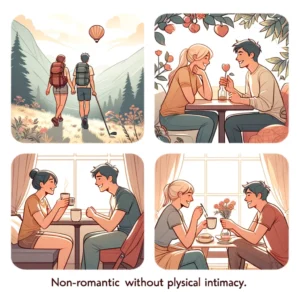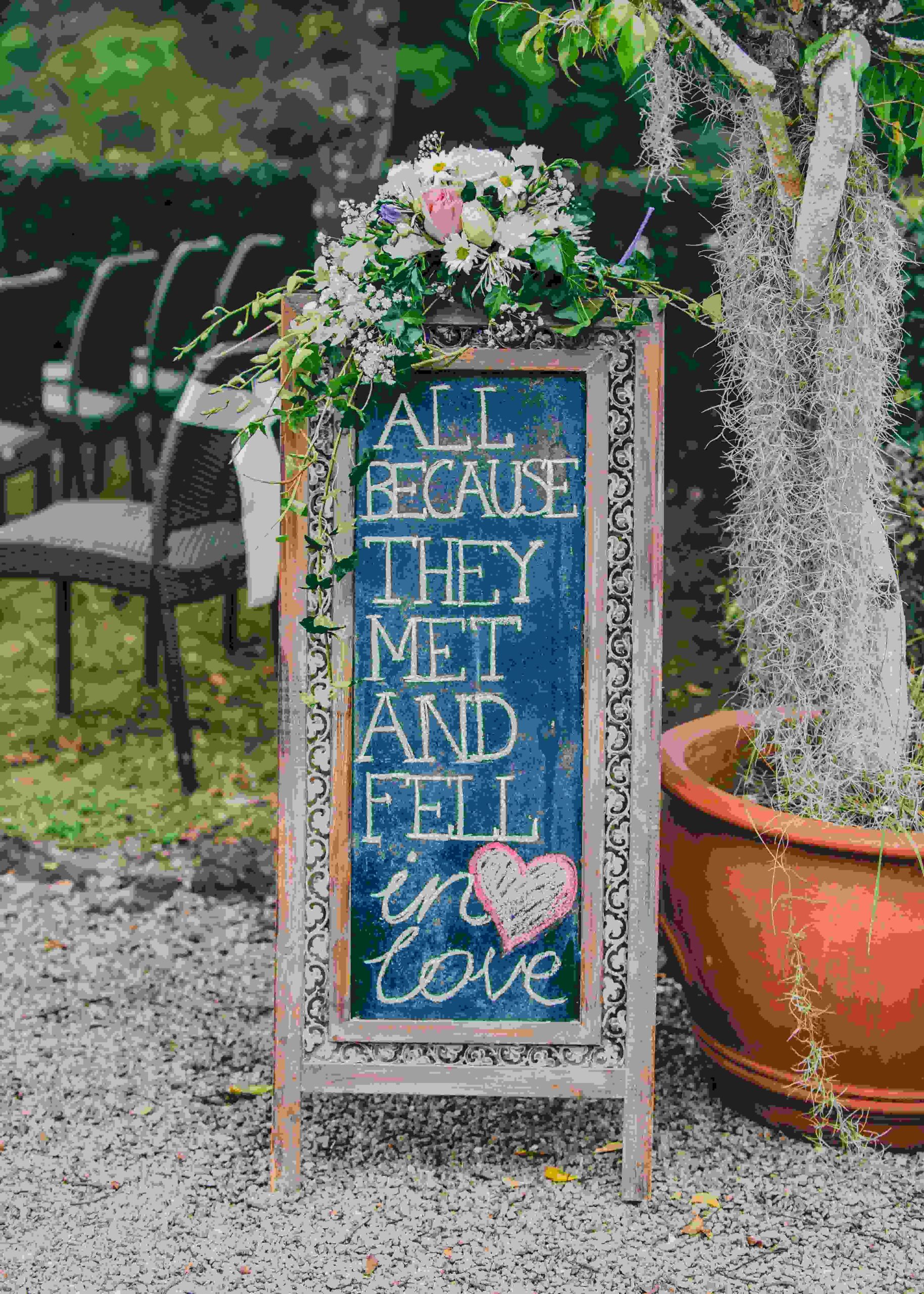Love comes in many forms. From familial bonds to deep friendships, love is a fundamental human need.
But two types of love often cause confusion – platonic and romantic. These similar yet distinct types of affection share core attributes while diverging in significant ways.
In this exploration, we will dive into the intricacies of platonic and romantic love, examining their contrasts and surprising intersections to uncover insights into the tapestry of human connection.
Defining Platonic and Romantic Love
Before analyzing the dynamic between platonic and romantic love, let’s clearly define these two terms.
What is Platonic Love?

Platonic love is a profoundly caring, non-sexual affection between friends or acquaintances. Based on the writings of the ancient Greek philosopher Plato, this love prioritizes spiritual and intellectual connection above physical attraction.
Hallmarks of platonic love include:
- Deep emotional intimacy and vulnerability
- Intense friendship and affection without sexual or romantic desire
- Appreciation of someone’s personality, wisdom, and spirit
Ultimately, platonic love manifests as an unconditional love between people for who they are, not what they can provide romantically or physically.
What is Romantic Love?

Romantic love differs from platonic love in that it includes passionate intimacy and attraction. Romance ignites biochemical reactions in the brain leading to euphoric emotions and sexual desire.
Key characteristics of romantic love include:
- Powerful physical and emotional chemistry
- Excitement, butterflies, and exhilaration
- Sexual attraction and intimacy
- Focus on partnership and couplehood
While platonic love grows gradually from emotional bonds, romantic love can strike suddenly based on magnetic chemistry and attraction.
Contrasting Platonic and Romantic Love
While platonic and romantic love share an essence of caring attachment, core distinctions impact their expression and interpersonal dynamics.
Physical Intimacy
One primary contrast is the role of physical intimacy. For romantic partners, activities like kissing, cuddling, and sex foster closeness and bonding. The lack thereof can strain romantic relationships. Meanwhile, platonic friends maintain affectionate bonds without physical intimacy.
Exclusivity
Romantic couples practice emotional and sexual exclusivity, sharing these intimate experiences only with each other. Conversely, individuals experience platonic love non-exclusively with multiple friends and acquaintances concurrently.
Commitment
Romantic relationships necessitate a commitment to the couplehood above individual friendships. Platonic friends remain committed to the friendship while retaining autonomy in other bonds and life choices.
Jealousy
Platonic friends feel happy for each other’s success and relationships. Romantic couples sometimes encounter jealousy over time, attention, or new romantic prospects, which can stifle relationships.
Benefits of Platonic and Romantic Love
While differing significantly, both platonic and romantic love offer tremendous value.
Benefits of Platonic Love
- Personal growth: Platonic support fosters identity development and actualization.
- Emotional support: Platonic friends provide comfort, reassurance, and community.
- Free from romantic pressure: The friendship remains caring and consistent without romantic expectations.
- Longstanding bonds: Friendships often outlast romantic partnerships and life phases.
Benefits of Romantic Love
- Intimate connection: Romance facilitates profound intimacy and vulnerability.
- Passion and excitement: Romance activates exhilaration from chemical reactions.
- Exclusivity and belonging: Mutual commitment creates a unique bond.
- Partnership: Romantic couples journey through life’s milestones together.
Can Platonic and Romantic Love Coexist?
Many people nourish both platonic and romantic connections simultaneously. However, balancing these relationships requires consistent communication and boundary-setting to prevent misunderstandings.
Cultivating Both Dynamics
Those wishing to maintain both platonic and romantic relationships must nurture each bond separately, recognizing their distinct needs. Ensure platonic friends feel valued by making time for quality interactions without romantic partners around. And give romantic partners affection, intimacy, and full emotional presence.
Setting boundaries reduces the chances of platonic friends developing unrequited romantic feelings. If one friend catches romantic feelings, address them compassionately while reiterating the parameters of the friendship.
Challenges in Overlap
Sometimes, platonic friends transition into romantic partners. While this union can enrich the existing emotional bond, certain challenges may arise:
- Transitioning roles: Adjusting friendship dynamics to accommodate coupledom.
- Physical intimacy introduction: Navigating new physical and sexual activities together.
- Disrupting friend group: Romance between members can impact group dynamics.
With understanding and care from all involved, close friendships can evolve into fulfilling romantic partnerships without losing platonic intimacy.
Romantic Partners Remaining Friends
Romantic relationships often conclude but the love remains in altered form. Former romantic partners can preserve platonic caring and support by:
- Allowing time for emotional adjustment after the breakup
- Establishing parameters like reduced contact and not discussing new romantic partners
- Appreciating the friendship as a singular, meaningful bond
Reconciling romantic feelings with platonic affection requires adaptability, maturity, and open communication. But for many, deep friendship endures romantic heartbreak.
Societal Views on Platonic vs. Romantic Love
Across much of contemporary society, romantic love garners greater emphasis and validation than platonic bonds. Tropes like “friend-zoning” convey disdain for non-romantic connections. However, these biases are beginning to shift.
Prioritizing Romantic Couplehood
Traditional social scripts prize romantic relationships above friendships. From childhood fairy tales to Hallmark movies, cultural messaging routinely depicts romance as the pinnacle.
Consequently, people often devote less time and care to friendships once entering a serious romantic relationship. Yet, platonic support frequently outlasts fickle romantic bonds.
Progress Toward Platonic Appreciation
Thankfully, recent years brought a greater appreciation of platonic love’s significance. The embrace of chosen families expands definitions of meaningful relationships beyond romantic ties.
Likewise, some couples now prioritize maintaining close friendships alongside their romance. With open minds, our society continues progressing toward fully validating all forms of love.
Healthy Integration of Multiple Loves
Navigating diverse loving bonds while avoiding hierarchical comparisons requires mindfulness and strong self-understanding.
Understand Your Own Needs and Capacity
Consider your fundamental requirements for both platonic and romantic connections. Do you feel fulfilled with numerous close friendships? Or do you prefer to channel emotional energy into one romantic relationship?
Assess your bandwidth for intimacy and investment in each bond. Reflect on how different relationships enhance well-being and support thriving.
Honor Each Relationship’s Unique Role
Rather than ranking varieties of love, appreciate relationships as complementary components of life’s tapestry. There need not be winners and losers.
Make time for friends, chosen family, mentors, committed partners, and others who nurture you. Prioritize listening and speaking openly to foster mutual understanding across all bonds.
Conclusion: Embrace the Spectrum
Life invites myriad possibilities for loving connection. While romantic and platonic relationships differ substantially, both offer fulfillment through their unique expressions of intimacy. By abandoning hierarchical comparisons, we can revel in the diversity of bonds supporting human flourishing. Love manifests in countless forms – may we honor them all.

